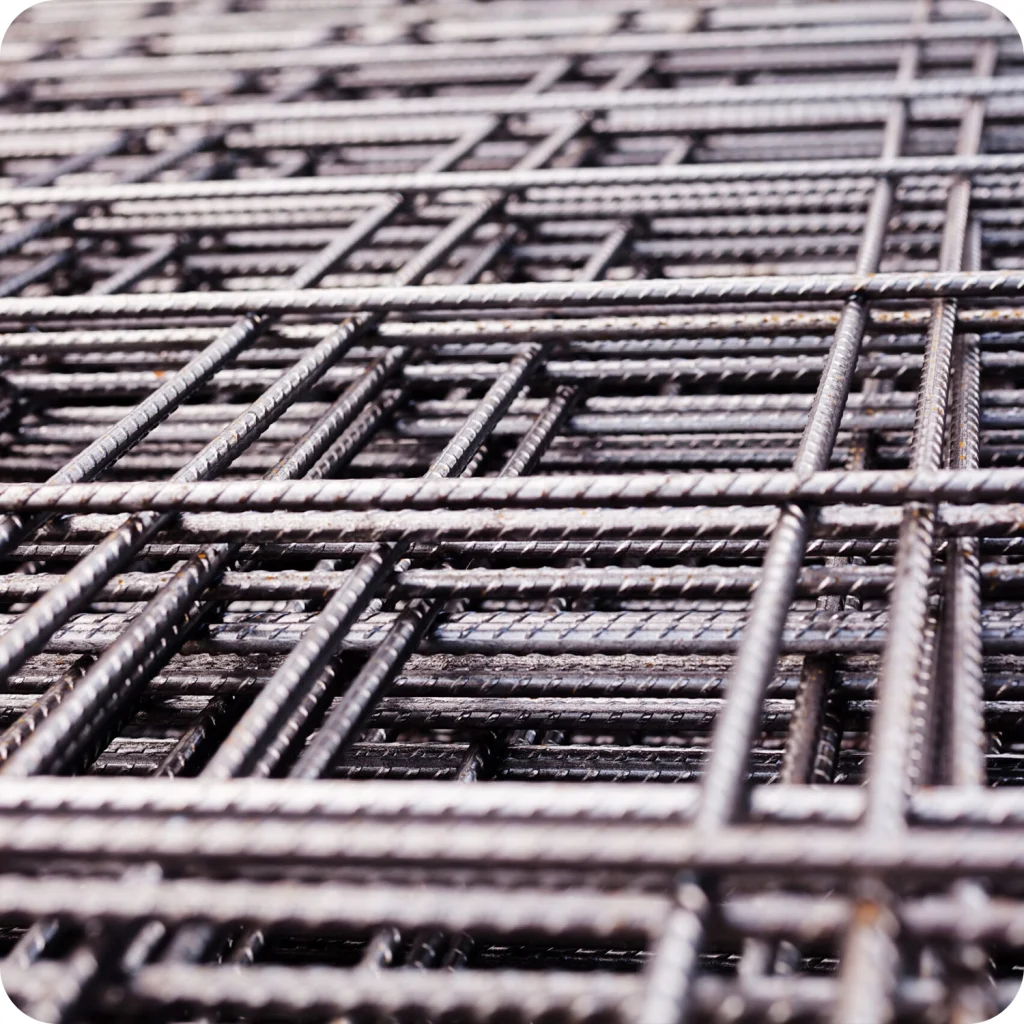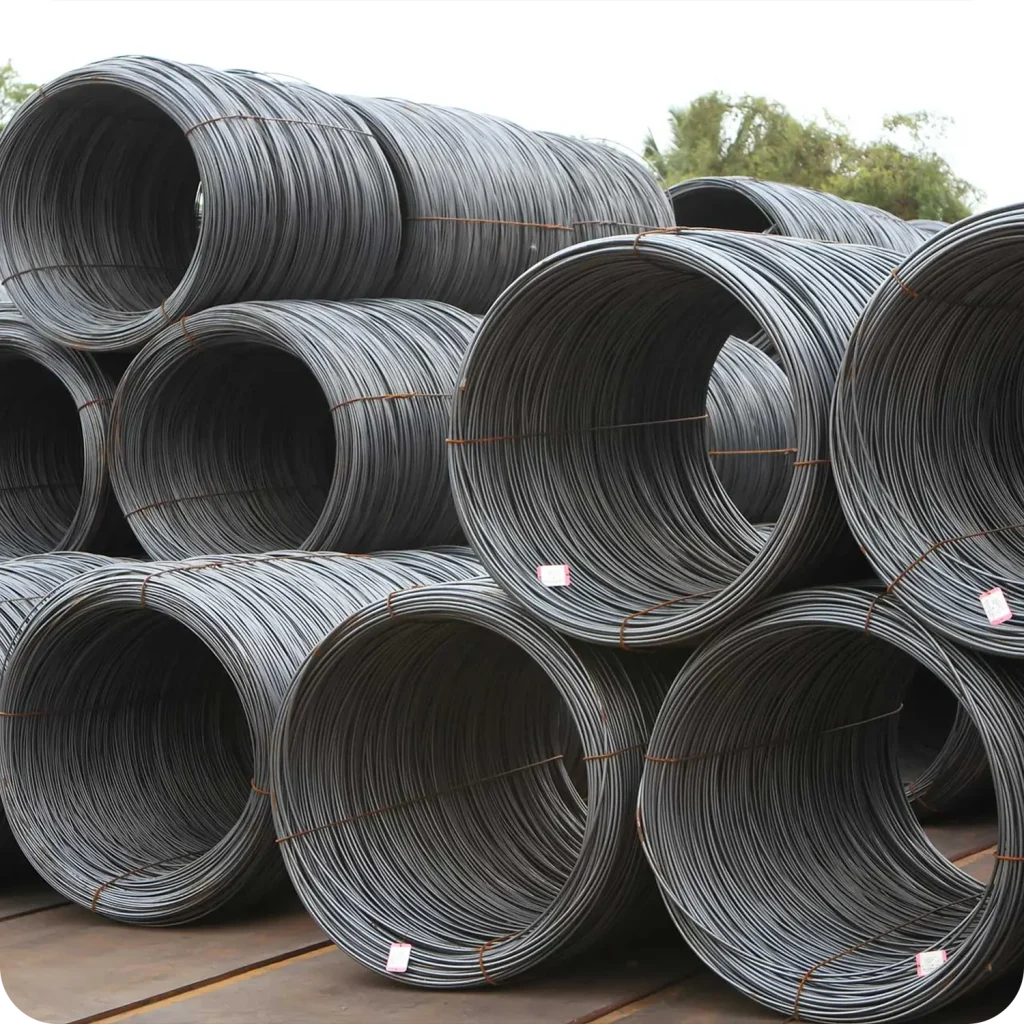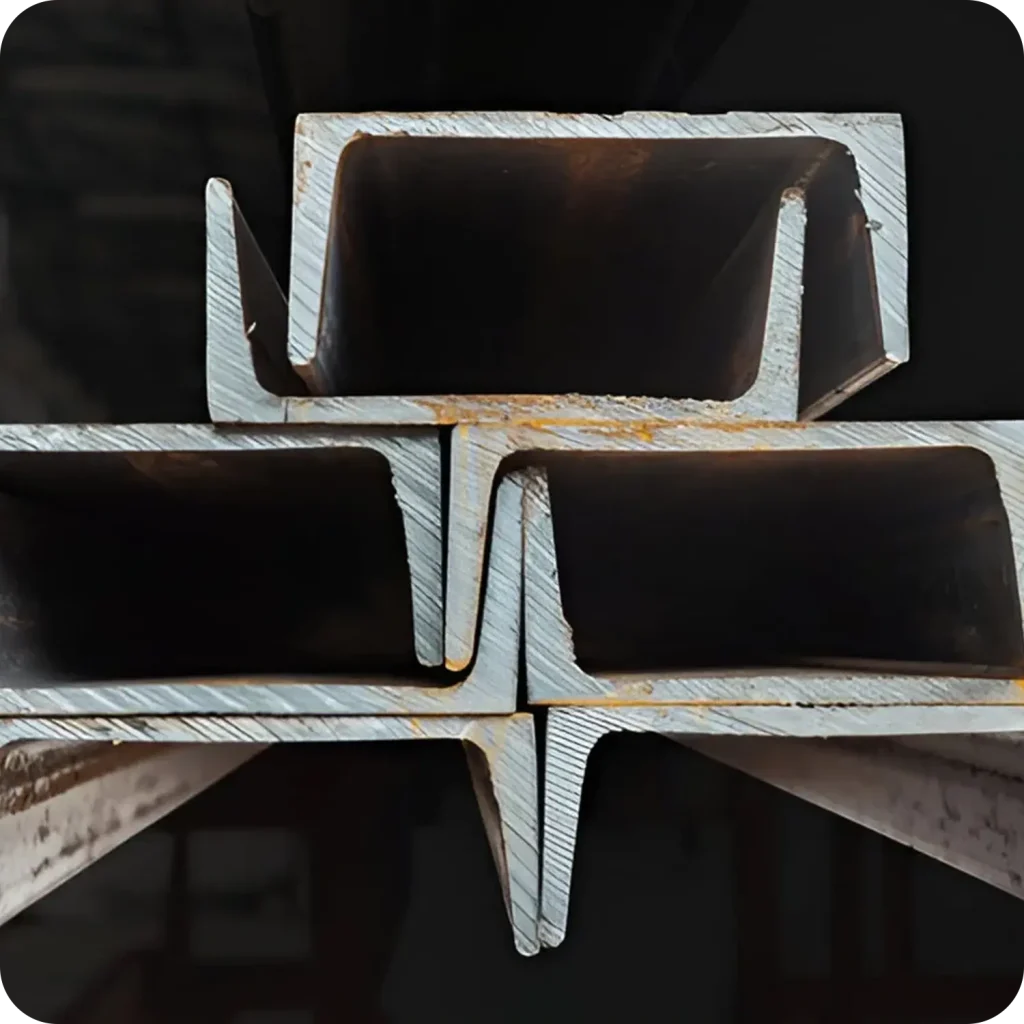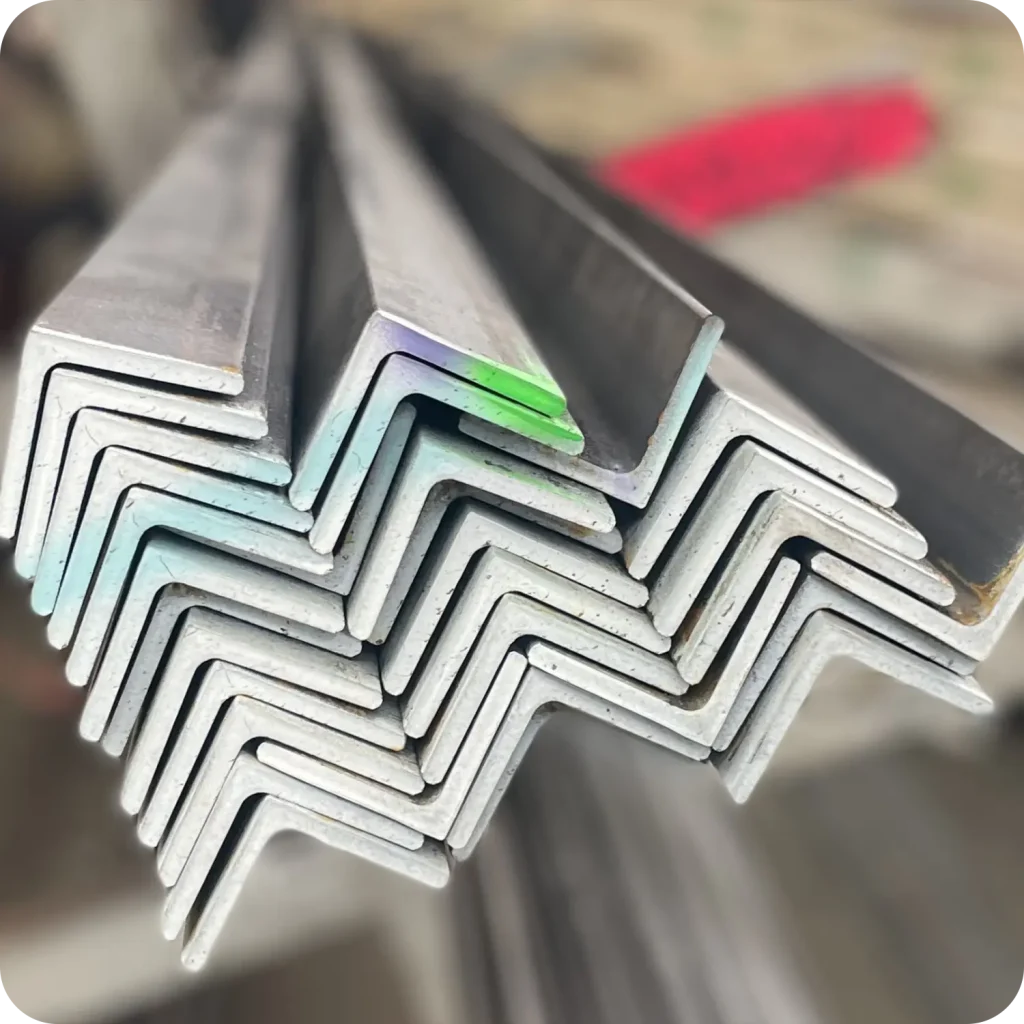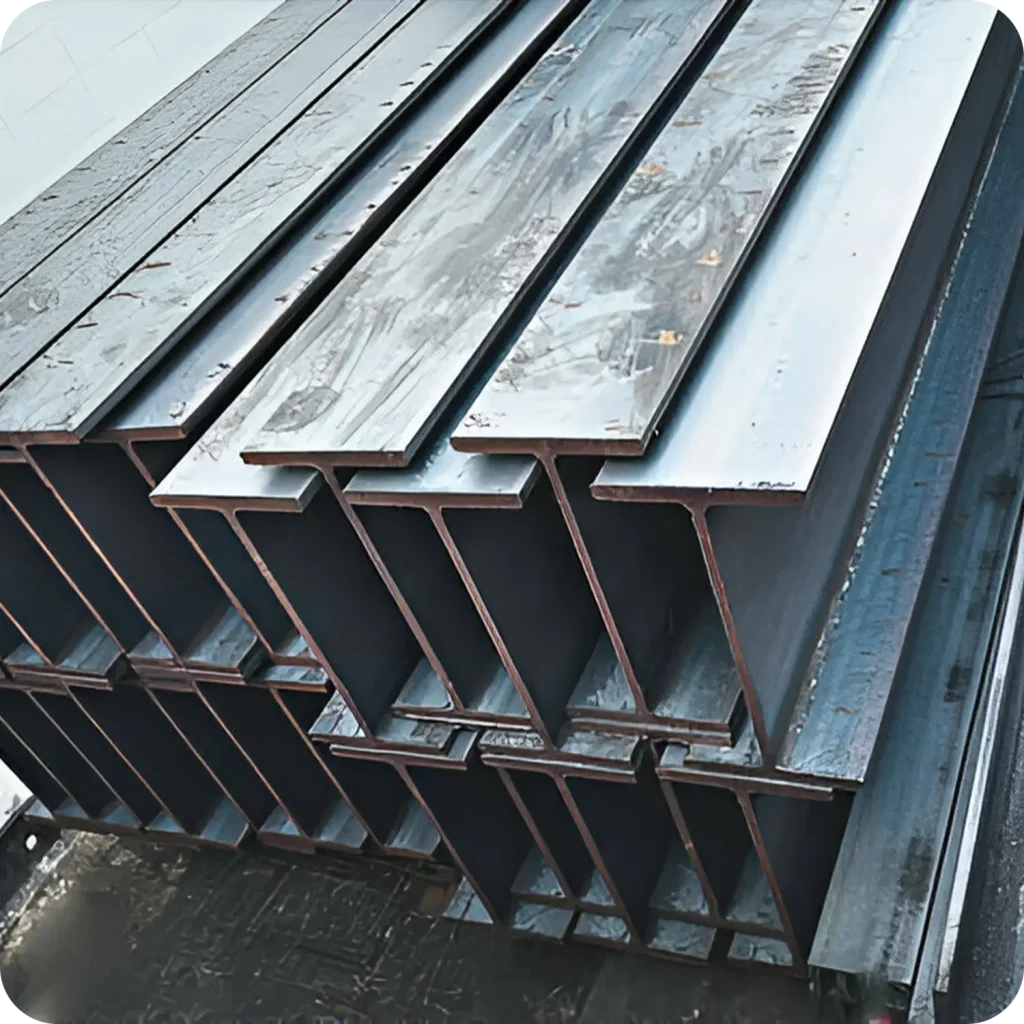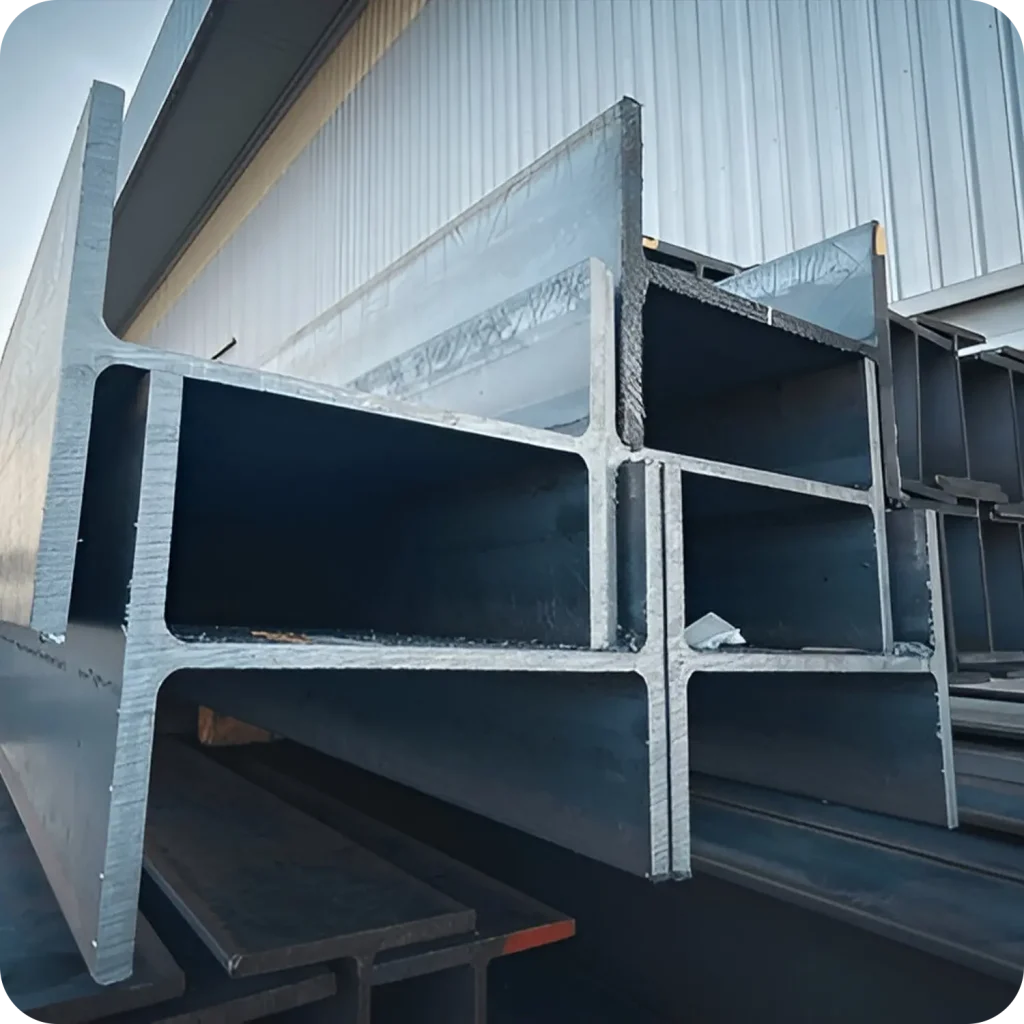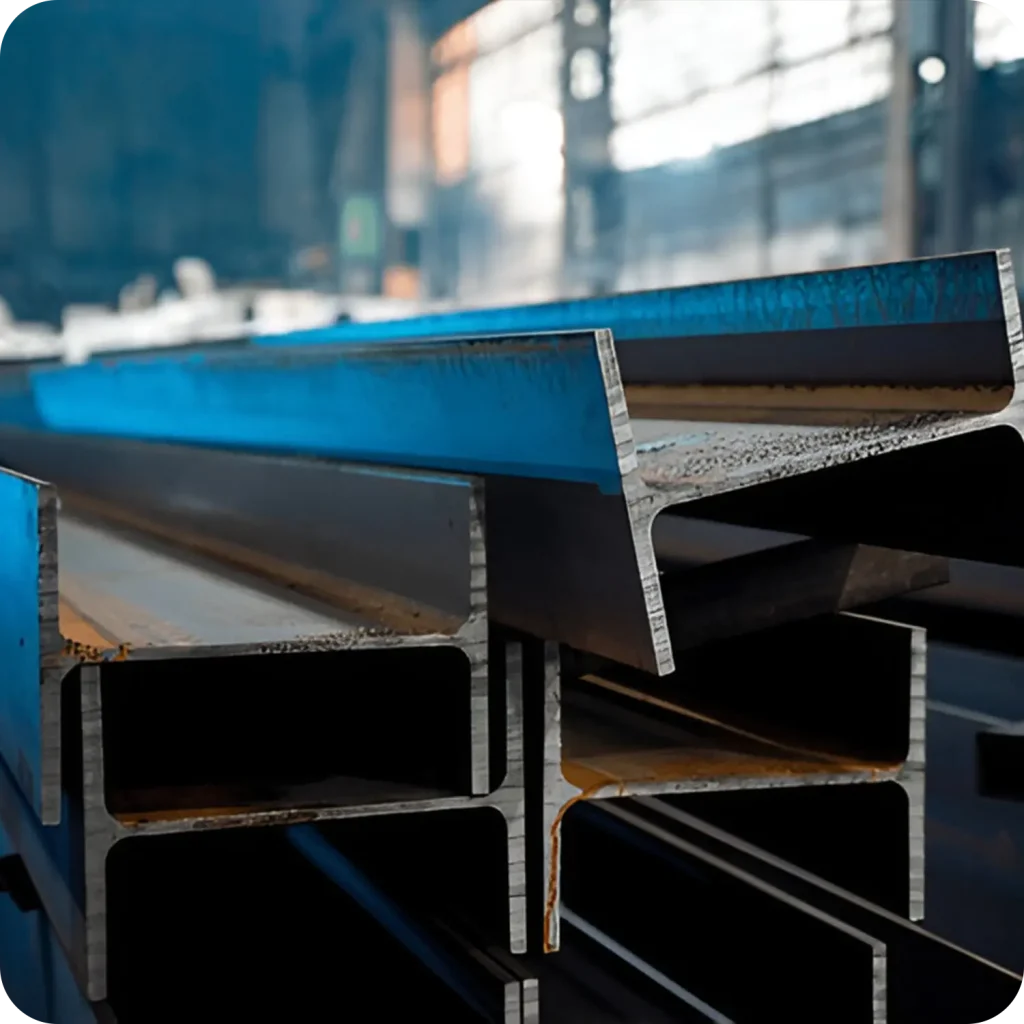Rebar – Reinforcing Steel Bars in Multiple Grades for Concrete Structures
Rebar, short for reinforcing bar, is a critical steel product used to reinforce concrete structures by improving their tensile strength and durability. Produced according to national and international standards, rebars are available in various grades and diameters to meet diverse construction requirements.
Key Characteristics of Rebar
Round or Ribbed Surface
Rebars are typically available in smooth (plain) or ribbed (deformed) forms. Ribbed rebars offer superior bonding with concrete due to their surface texture.
High Tensile Strength
Rebars are designed to carry tensile loads, working in combination with concrete’s compressive strength to form a solid, load-bearing structure.
Available in Multiple Grades
Rebars come in several strength classes depending on the carbon content and manufacturing process. Common grades include:
- Grade A1 (S240) – Plain surface, low carbon steel, suitable for light reinforcement and bending applications.
- Grade A2 (S340) – Ribbed bar with medium strength, used in standard structural components.
- Grade A3 (S400) – High strength, ribbed bar suitable for load-bearing elements such as beams and columns.
- Grade A4 (S500) – Very high strength ribbed rebar for critical structural elements and high-load applications.
Compliance with Standards
Rebars are manufactured according to standards such as ASTM A615, BS 4449, DIN 488, or national standards like ISIRI 3132, depending on the country of production.
Various Diameters and Lengths
Available in diameters ranging from 6 mm to 40 mm, and typically supplied in lengths of 6 or 12 meters or in coils for smaller sizes.
Common Applications of Rebar
Rebar is a core component in nearly all types of concrete structures, including:
Foundations and Footings
Rebar provides tensile strength in concrete footings and slab foundations.
Beams and Columns
Used as internal reinforcement to carry structural loads in vertical and horizontal elements.
Slabs and Roofs
Essential for strengthening concrete slabs and flat roofs.
Retaining Walls and Bridges
Offers enhanced durability and resistance in infrastructure exposed to pressure, load, or weather.
Roads, Tunnels, and Dams
Used in large-scale civil engineering projects where reinforced concrete is essential.
Rebar Size Chart (Metric Units)
| Diameter (mm) | Approx. Weight (kg/m) | Cross-Section Area (mm²) |
|---|---|---|
| 8 | 0.395 | 50.3 |
| 10 | 0.617 | 78.5 |
| 12 | 0.888 | 113.0 |
| 14 | 1.21 | 154.0 |
| 16 | 1.58 | 201.0 |
| 18 | 2.00 | 254.0 |
| 20 | 2.47 | 314.0 |
| 25 | 3.85 | 491.0 |
| 32 | 6.31 | 804.0 |
| 40 | 9.86 | 1256.0 |
Other sizes and custom lengths are available upon request.
Why Choose Our Rebars
Our rebars are manufactured to meet stringent quality standards and are available in multiple strength classes to suit all structural needs—from light residential projects to large-scale industrial construction. Whether you’re working on buildings, bridges, roads, or dams, our rebars ensure the strength, flexibility, and durability your project demands.

